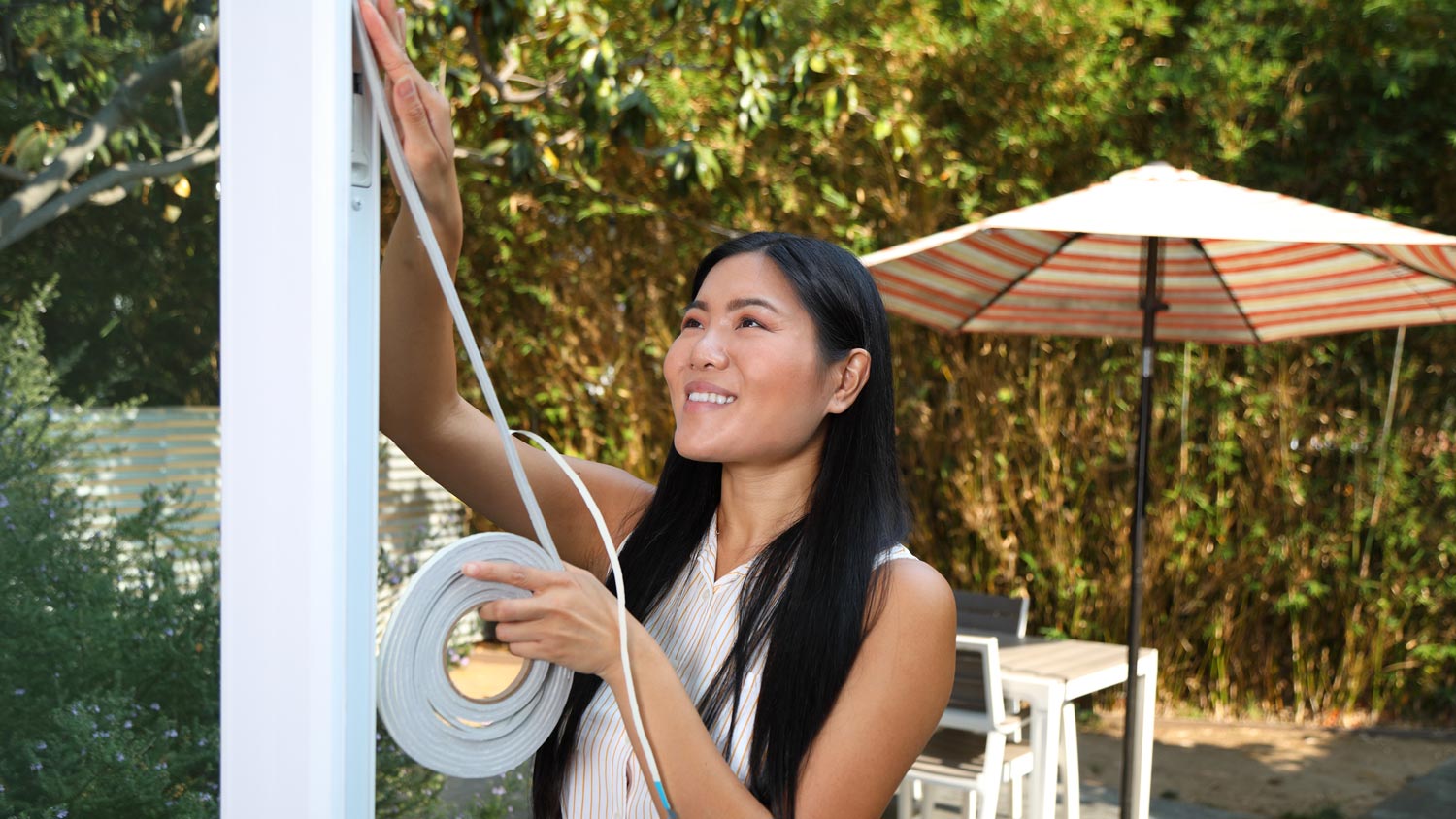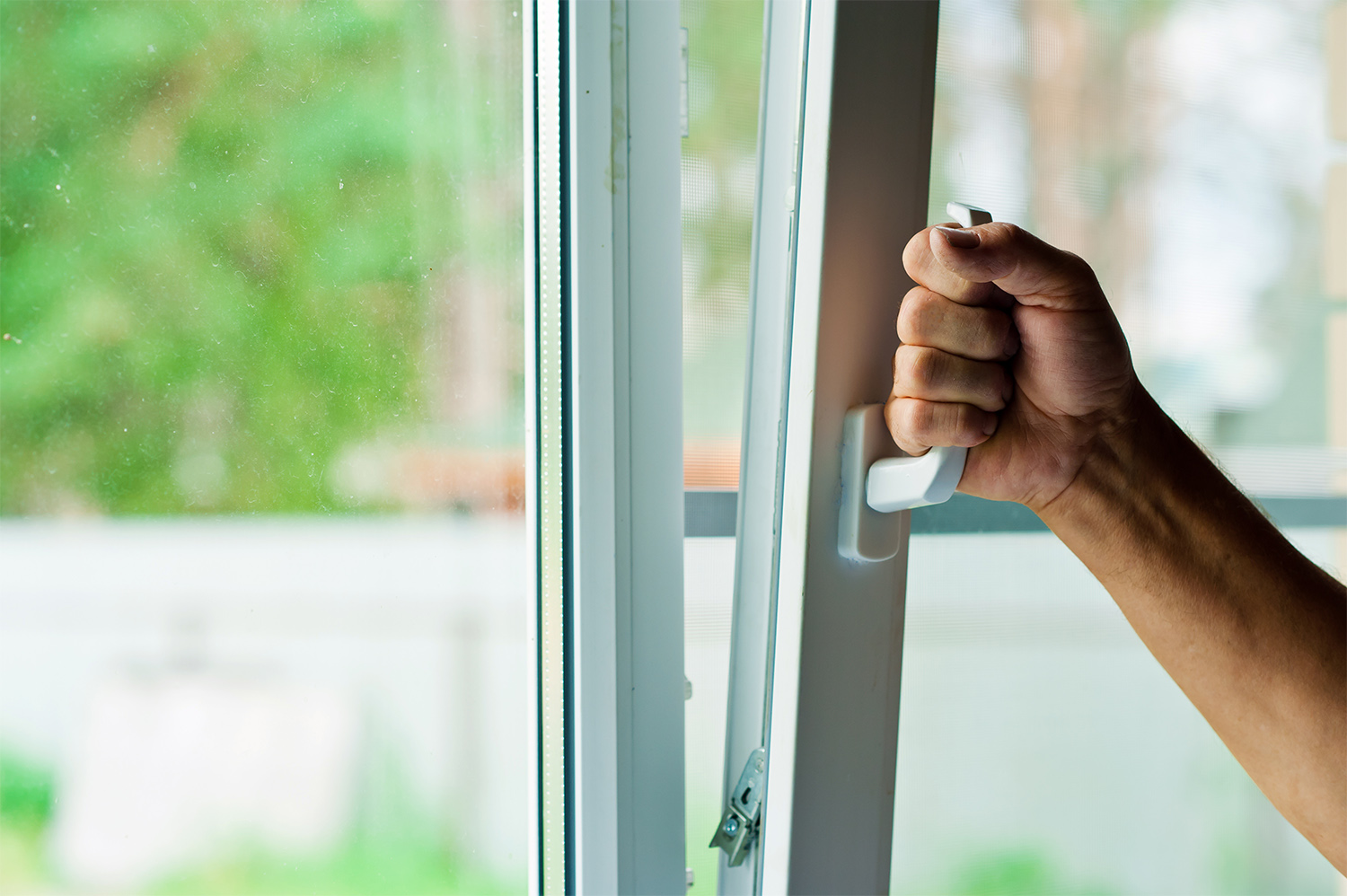
Wooden windows elevate a home’s curb appeal and have a lifespan of up to 45 years. Learn about the cost of wooden windows and how to get an estimate.
Sunshine and savings—sign us up


You can save an average of 12% on utilities with energy-efficient windows.
Upgrading your windows saves about 50 to 300 gallons of gasoline per window.
Each individual double-pane window costs $50 to $225 more than a conventional, single-pane window.
Energy-efficient windows cost between $300 to $1,000 per window to install.
Look for an Energy Star or National Fenestration Rating Council label to identify energy-efficient windows.
Upgrading to energy-efficient windows has a high return on investment (ROI).
Feeling a cold draft in the winter or the stifling heat of an oppressive summer are signs that your windows are wasting your heat or air conditioning. While a properly fitted and installed window is important for decreasing your home’s heating and cooling expenses and saving money, so are the window materials you choose. One of the most effective ways to improve a building's energy efficiency is to capitalize on the benefits of energy-efficient windows.
Energy-efficient windows have increased insulation that helps prevent your air conditioning or heat from escaping your home. They also help keep outdoor temperatures from creeping in and battling with your HVAC system. You can choose between double or triple-pane windows to help add that extra insulation.
For better energy efficiency and heat preservation, energy-efficient window materials have a higher insulating value than conventional windows. Features include:
Double- or triple-glazed glass units
Airtight, hermetic sealing
Low-emissivity (low-E) coatings—either made of metal or metallic oxide
Optional reflective glass coating
Insulating gas—usually krypton or argon—in the space between the panes to help slow and reduce the transmission of indoor heat to the exterior of your home
Spacers with low-conductivity edges
Energy-efficient windows work as a more efficient barrier to the heat transfer process than traditional windows. Single-glazed windows were used in older homes, and though they still exist in the market and in outdated homes, most new windows consist of energy-efficient, multiple-glazed windows to help reduce heat transfer.
To best understand how energy-efficient windows work, it helps to look at the heat transfer process:
Through conduction, heat is transferred through the window. In the wintertime, this means the heat generated by your HVAC system is directly lost through cold, inefficient window panes and window frames.
When warm air comes in contact with a cold windowpane, it is cooled, and the cold air sinks while more warm air from your home rises to replace it.
This creates a cycle of rising warm air and sinking cool air that creates a cold draft in your home.
In the summer, the opposite is true; the heat flow reverses, bringing heat into your home and warming the air that’s cooled from your HVAC system.
According to the Department of Energy, windows are responsible for 25 to 30% of energy use. If your energy bill is above average, talk to a window contractor about an energy-friendly upgrade.
When it comes to energy efficiency, these are some terms that are likely to pop up frequently over the course of your research and shopping.
Low-E Glass. Low-E stands for “low emissivity” and is a thin, transparent coating used on glass that reflects heat in order to limit the amount of heat that passes through it.
Argon Gas. Argon gas is a gas that does not contain any moisture. It is used to fill the spaces in double and triple-paned windows to promote better insulation.
R-Value. The R-value refers to the measure of how well a barrier reduces the conductive flow of heat.
U-Factor. The U-Factor refers to the rate at which a window transmits non-solar heat flow. In other words, it is the measure of how well a window insulates.
Saves money over time: Energy-efficient windows can save you an average of 12% on your energy bills, according to Energy Star.
Lower carbon footprint: You save approximately 50 to 300 gallons of gasoline per window by replacing single-pane windows with energy-efficient windows.
More comfortable indoors: More efficient windows equal a more comfortable home that isn’t as stifling hot or chilly.
Longer HVAC life span: Your HVAC system won’t need to turn on as frequently, extending its life span.
Less noise: Better insulation means fewer outdoor sounds seeping into your home.
Less Condensation: They cut down condensation levels because the insulation ensures a steadier room temperature and reduces moisture from being drawn in.
High ROI: These windows have a high ROI, as they increase a home’s resale value. Home buyers want them because they’ll get a lifetime of savings.
UV Protection: They protect your home’s interior from UV rays that can damage wood, fabric, artwork, carpeting, and more. Energy-efficient windows with Low-E glass or window film can block up to 98% of rays to prevent fading and deterioration.
High upfront costs: Efficient double-pane and triple-pane window replacements cost more upfront than single-pane windows—$50 to $225 and $450 to $925 more, respectively.
Moderate-sized upgrade: To see the most out of your window upgrade, you’ll need to replace all windows in your home, making this more than a simple and fast project.

Energy-efficient windows cost anywhere from $300 to $1,000 per window, including installation. This can depend on a number of factors, including the number of windows needing replacement, the size of the windows, and upgrades like low-E or reflective coatings.
You can save anywhere between $100 to $600 yearly on your utility bill by switching to energy-efficient windows. How much you save depends on:
How many windows you have
The state of your current windows
The quality of your new windows, and
Your local climate
When you're ready to shop for replacement windows, these are some factors to keep in mind to ensure energy efficiency.
Energy Star Label
An Energy Star label is energy-efficient regardless of the window type. The U.S. Department of Energy and the Environmental Protection Agency's Energy Star program focuses on providing consumers with the most energy-efficient, home-related products. Again, ENERGY-STAR-certified windows lower household energy bills by an estimated 12% nationwide.
National Fenestration Rating Council Label
The National Fenestration Rating Council label provides information about "whole window" energy factors. A window's entire energy value is expressed in several values, including:
U-factor: Measures heat loss, with windows with a lower U-factor more suited for cold climates
Solar Heat Gain Coefficient (SHGC): Measures how much heat from sunlight passes through the window, with windows with a low SHGC better suited to warmer climates
Air leakage factor: Determines the likelihood of drafts, with drafty windows more likely to have higher numbers
Condensation resistance: Measures the potential for condensation inside windows, with higher window ratings less likely to see water condensing within multiple window glazes
Visible light transmittance: Like sunglasses, higher numbers mean less visible light passing through the window
The energy efficiency of a window is also affected by an invisible protective layer called an e-coating. Argon or krypton gas sealed between each layer further enhances the efficiency of multiple-glazed windows.
When installed properly, windows are more likely to function properly and with the utmost energy efficiency. You can tell if your windows are properly installed by checking the level, plumb, bowing, and square.
The location of your windows will also impact energy efficiency. This is true on both a larger and smaller scale—in other words, your home’s location in the world and your window’s location in reference to your specific property. The local climate where you live will impact energy efficiency. For instance, if you live somewhere with extremely cold temperatures, you will need more intense insulation methods.
Additionally, the orientation of your home and the degree of shading impacting the home play a role in energy efficiency. For example, if your home is surrounded by many trees, then less warmth will get in through the windows.
The type of frame your window has impacts energy efficiency since different materials have different insulating abilities. For example, wood windows are a solid option for insulation as wood has low conductivity, keeping the heat and cold from passing from outside into your home. Another option is fiberglass window frames with similar insulation effects to wood and weather-resistant properties that keep them intact.
The types of specifications you might need for your home may vary, so make sure you speak with a window company near you if you’re uncertain about which windows would be best for your home.
Particularly handy homeowners can DIY a window replacement project, but it’s generally best to hire a local window replacement company to do the job. Attempting to DIY the project without the skills and experience could end up costing you by jeopardizing your window’s performance entirely.
A window pro will accurately measure your windows, repair damaged window trims, recommend the best replacement windows for your region, and install them well so that you get the most savings on your utility bills.
Allie Ogletree contributed to this piece.
From average costs to expert advice, get all the answers you need to get your job done.

Wooden windows elevate a home’s curb appeal and have a lifespan of up to 45 years. Learn about the cost of wooden windows and how to get an estimate.

The cost of window glass replacement may vary, but it'll be worth the price once you're taking in the views. Here's how to calculate the cost.

Find out the cost to replace weatherstripping. Learn about material and labor costs, cost-saving tips, and what impacts your total price.

Need to replace your windows but not sure you want to keep the same dimensions? Learn about standard casement window sizes and how to fit windows to your space.

There are tons of types of kitchen windows that add charm and functionality to your home. Keep reading for a breakdown of 10 types of kitchen windows.

Discover the cost to replace window locks. Learn about price factors, labor rates, and tips to save on your window lock replacement project.